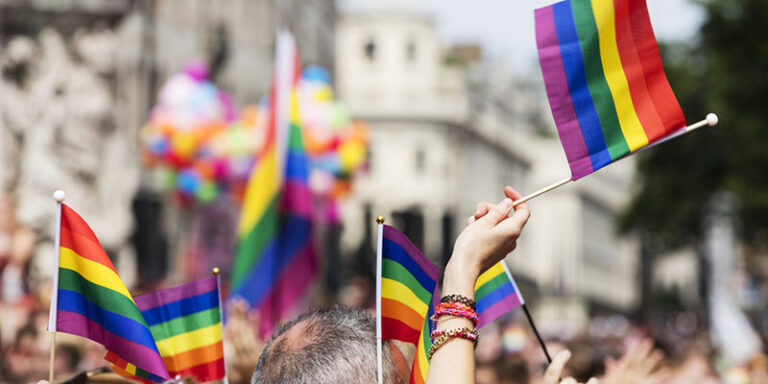
Civil society organizations advocating for rights of the LGBTQ+ communities have expressed dire need for empowerment and respect for the human rights promotion and social justice for sexual minorities and equal opportunities.
This was observed during the celebration of the Pride Month organized by Human Rights First Rwanda Association, a local rights group advocating for promotion of social justice and respect for the human rights of all people most especially the marginalized and vulnerable segment members of the community and sexual minorities.
The event held in Kigali featured the participation of the gay community including lesbianism, gay, transgender, and queer’s.
Pride Month, celebrated annually in June, honors the LGBTQ+ community and commemorates the Stonewall Riots, which marked a significant turning point in the fight for LGBTQ+ rights.
Speaking to the LGBTQ+ communities, Christian Garuka, Human Rights Lawyer stressed that activities such as Pride Month can slowly change people’s minds and hearts.
“You cannot change people’s minds one day. It will take time and effort but stress is formed,” he said adding “Change is possible despite the existing homophobic and transphobic attitudes.”
On another hand, Garuka emphasized to the gay individuals that the primary advocacy belongs to them. He said you always put blame on the civil societies which is reluctant to you but you need to come out of the closest yourself and speak up your needs,”
Rodgers Amutwendize, a human rights lawyer based in Kigali said the main goal of their advocacy is to have an LGBTQ+ inclusive community with acceptance and a supportive environment where LGBTQ+ individuals feel at home.
Amutwendize said, the challenges such as lack of access to intro-vitro fertilization for LGBTQ+’s and denial of the rights to association to difficulties in the registration of the LGBTQ+’s still exist.
“Homophobia against the LGBTQ+ still remains a reality in Rwandan society including at workplaces, hospitals and schools,” he further noted.
So far, the gay communities inquire about deeper inclusion and official recognition by the government.
Maily Isaro, a transgender woman said she is “always fearful to come out of the closet because of the possible discrimination that would come along.
We want official recognition that is productive without any suspicions. If it is voting, we should be allowed to do so with our new genders,” she said.
Andre Uwayezu, the founder of the WICECEKA community, a rights group suggested the intervention of the government officials in the promotion campaign of the gays would a landmark gesture to them.
“They should attend our events so that they can listen to our voices. It would be great if the Minister of Culture attends our meeting because they are the decision making organs,” he suggested.
Rwanda remains one of the few African countries that has assented to international conventions and continental frameworks that protect the human rights of all citizens, including the UN Declarations on Sexual Orientations and Gender Identity and the UN Report on Sexual Orientation and Gender Identity of LGBT populations. The country is also signatory to the 2011 United Nations statement condemning violence against LGBT people and has joined nine other African countries to support LGBT rights.
